KARACHI: Ever since he can remember Shabir Ahmed has spent every single Ramadan tucking into special treats at the food stalls along the Fresco Chowk in Karachi’s downtown Saddar.
However, with the coronavirus outbreak and ensuing lockdown, Ahmed says its the first Ramadan when he’s breaking his fasts at home.
“I would drive by to pick up crispy samosas and kachoris, chicken rolls, Arabian parathas and sweet jalebis made in desi ghee. However, this year I opened my first fast on Saturday with all homemade food,” Ahmed, 54, a real estate agent and a resident of the PECHS area in Karachi told Arab News.
Often referred to as one of Karachi’s old food streets, earlier the Fresco Chowk – which is part of the Burns Road – would be teeming with people, with thousands thronging the area from the afternoon to evening during Ramadan.
However, since the lockdown was imposed in Pakistan’s financial capital, a majority are spending Ramadan indoors.
Here, Arab News takes you through some of the hotspots in Karachi that have been impacted by the lockdown:
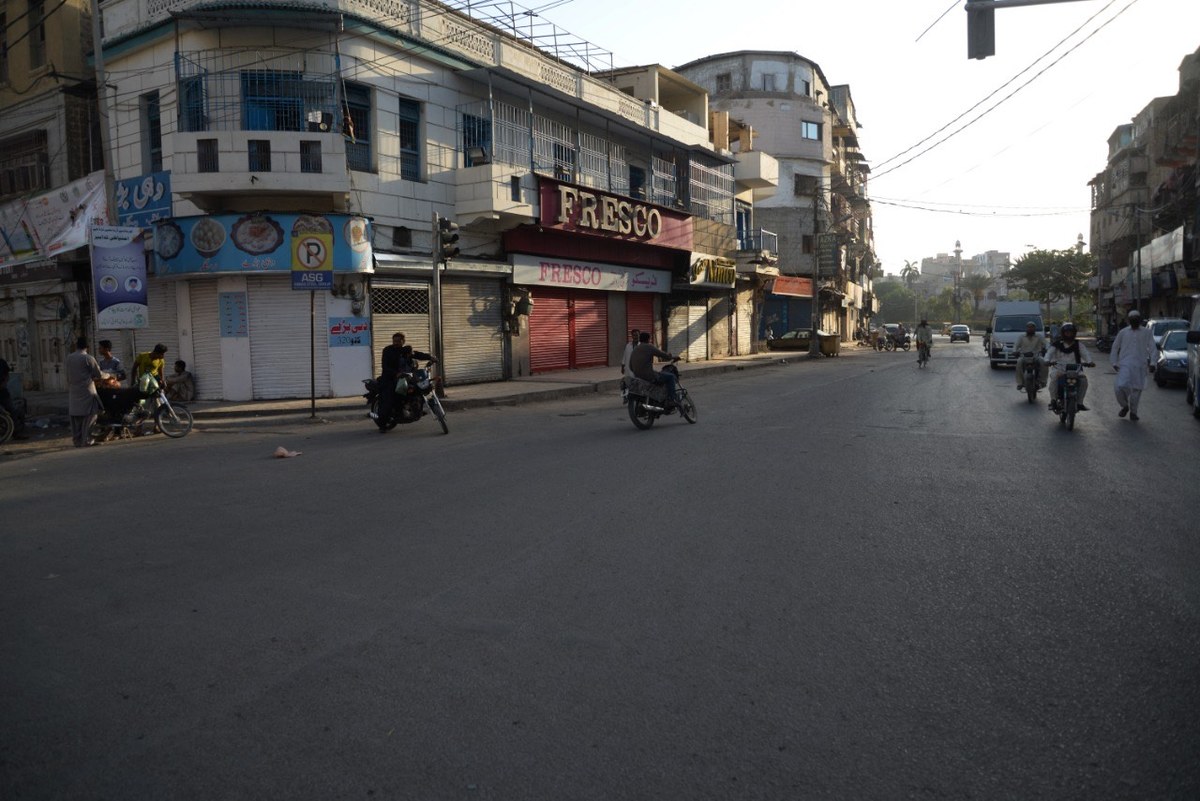
Once jam-packed during Ramadan, this food street along Burns Road, wears a deserted look on April 25, 2020. Several shopkeepers said provincial authorities had forced them to close shop as part of the country’s anti-virus measures. (AN Photo/S.A. Babar)
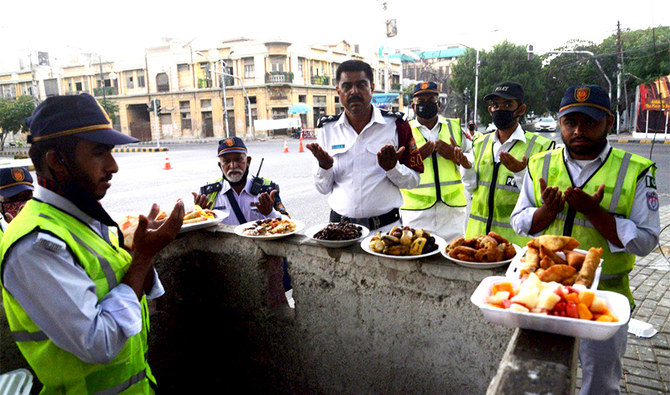
Traffic police personnel break their fast along the main road near Karachi’s Clifton Bridge on April 25, 2020. Law enforcement agencies have to remain on the road for 24 hours to ensure residents adhere to the lockdown in Karachi where the cases of local transmission are increasingly on the rise. (AN Photo/S.A. Babar)
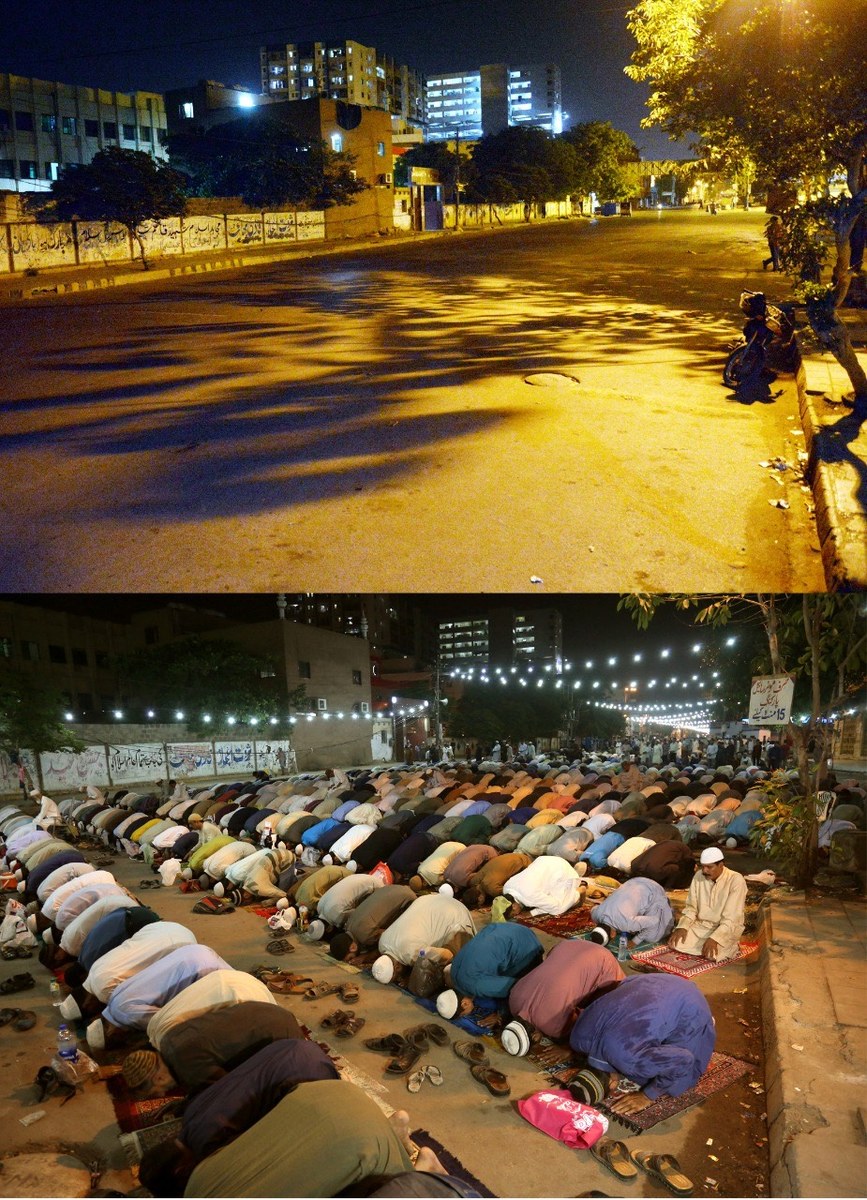
This before and after collage shows the Khaliq Dina Hall along the MA Jinnah Road where thousands had gathered to offer Taraweeh prayers on May 10, 2019; and which was devoid of worshippers on April 25, 2020. It follows the government’s move to ban mass prayers on the roads completely. (AN photo/S.A. Babar)

With the closure of restaurants and food streets, women say their workload has increased. “Although we prepare homemade food, having an option to buy ready to eat iftar items would have been a great help,” Nuzhat Ahmed told Arab News. (AN Photo/S.A. Babar)
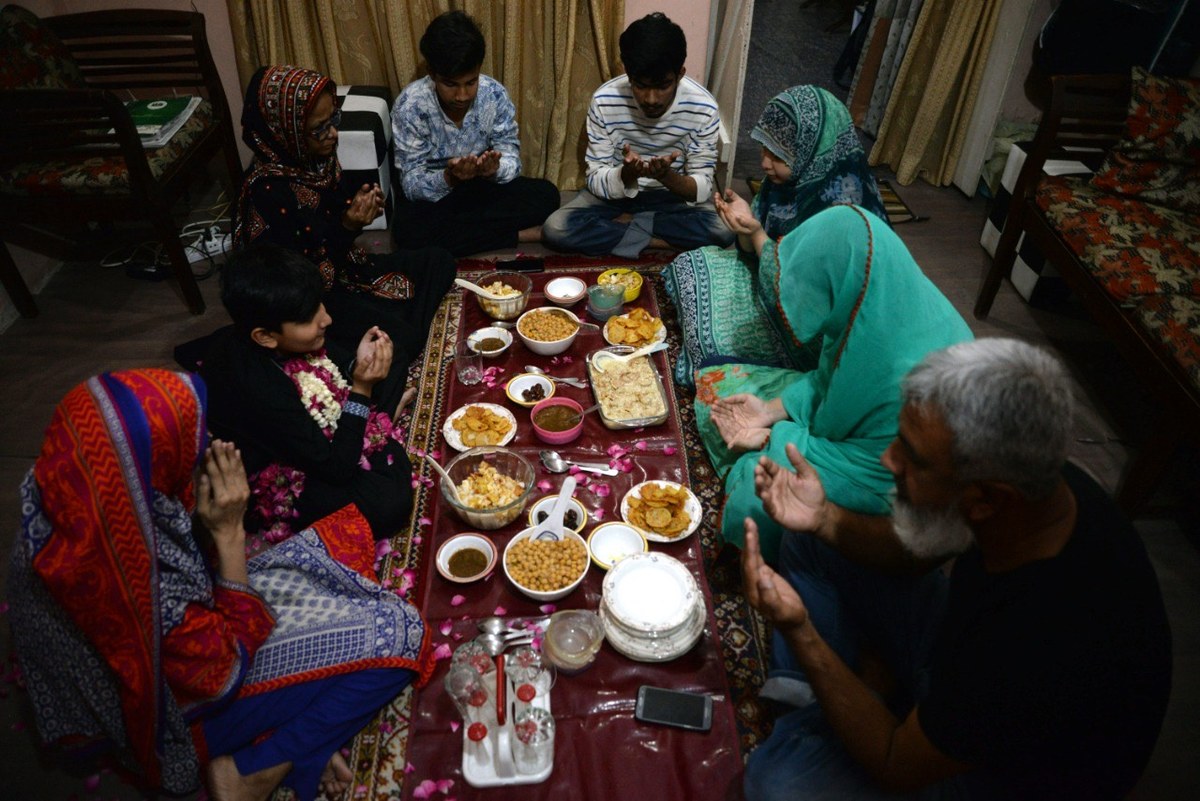
A family residing in the downtown Saddar area of Karachi is seen praying Maghrib, the evening prayer which marks the end of the day’s fast, on April 25, 2020. (AN Photo/S.A. Babar)
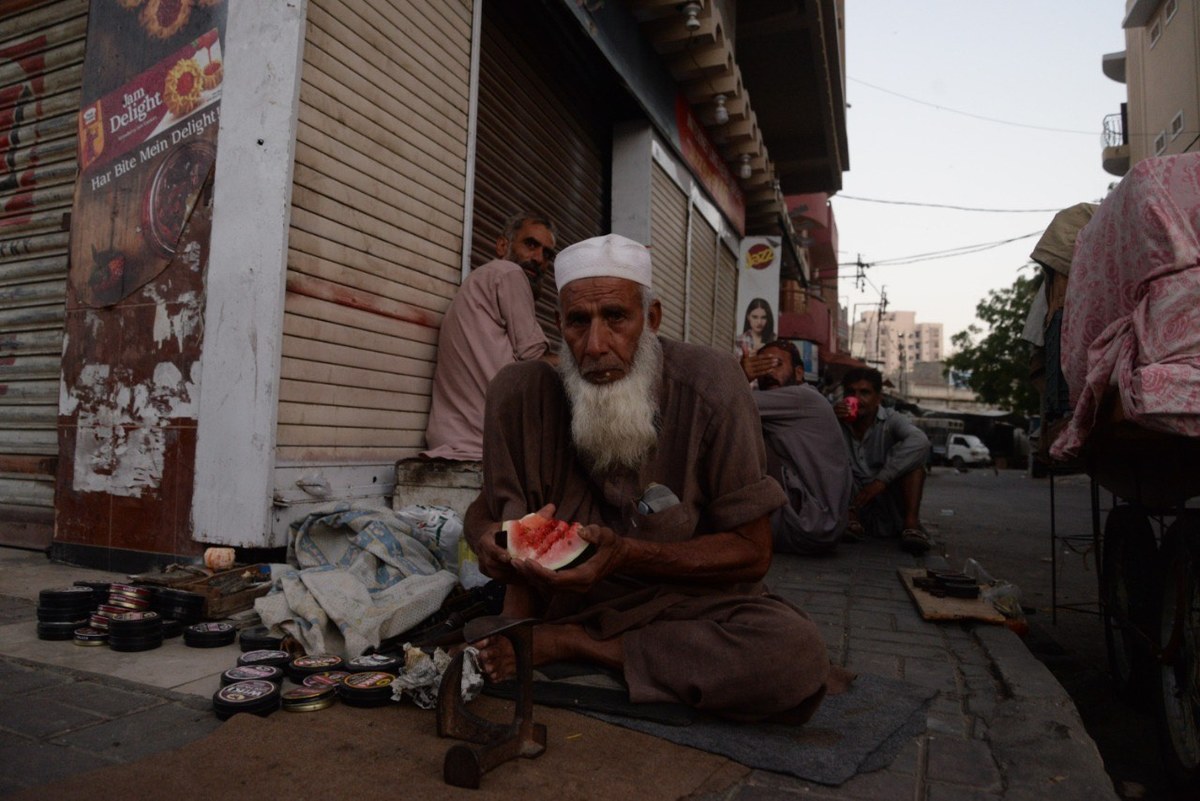
Hameedullah Khan, a cobbler in his 70s and hailing from the Bajaur tribal district of the Khyber Pakhtunkhwa province, breaks his fast with a piece of watermelon along the roadside on April 25, 2020. (AN photo/SA Babar)
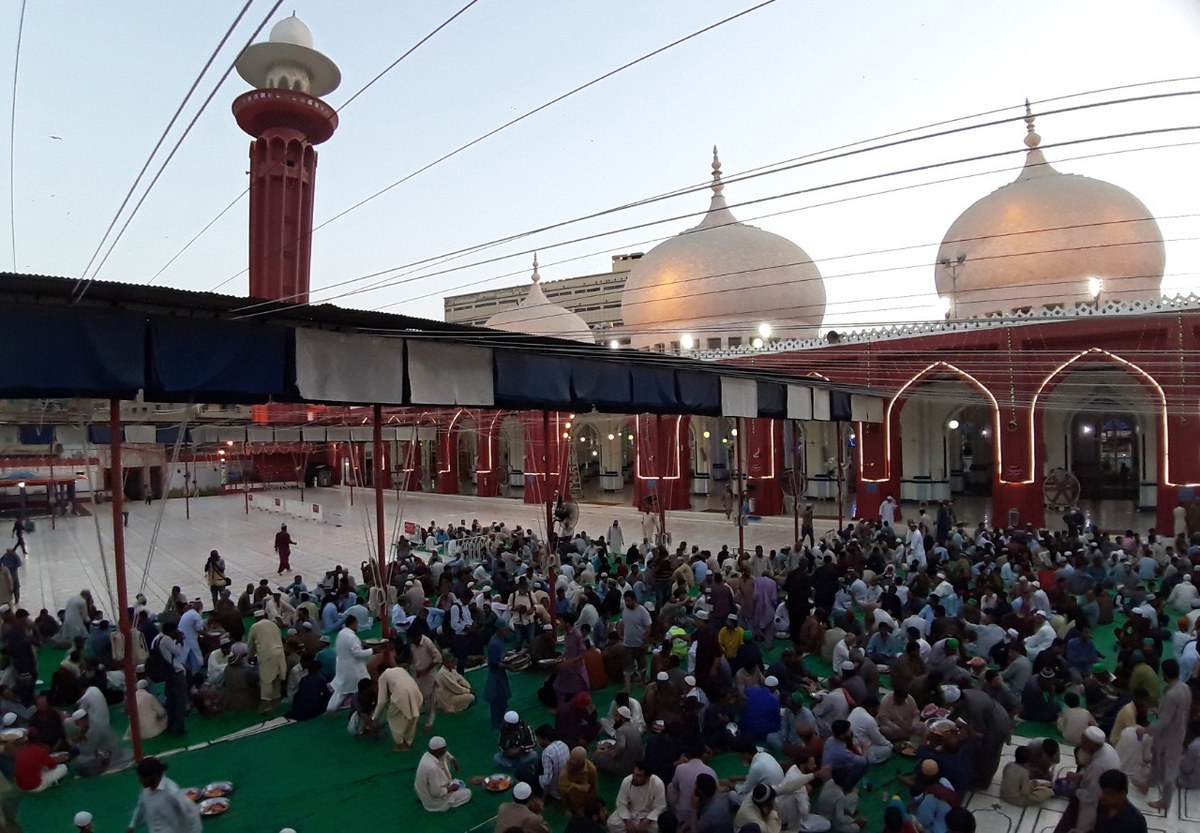
Thousands break their fast as during the grand iftar which is a 70-year-old tradition of Karachi’s New Memon Masjid on May 15, 2019. The same mosque wears a deserted look due to the lockdown in this before and after collage. (AN Photo/S.A. Babar)
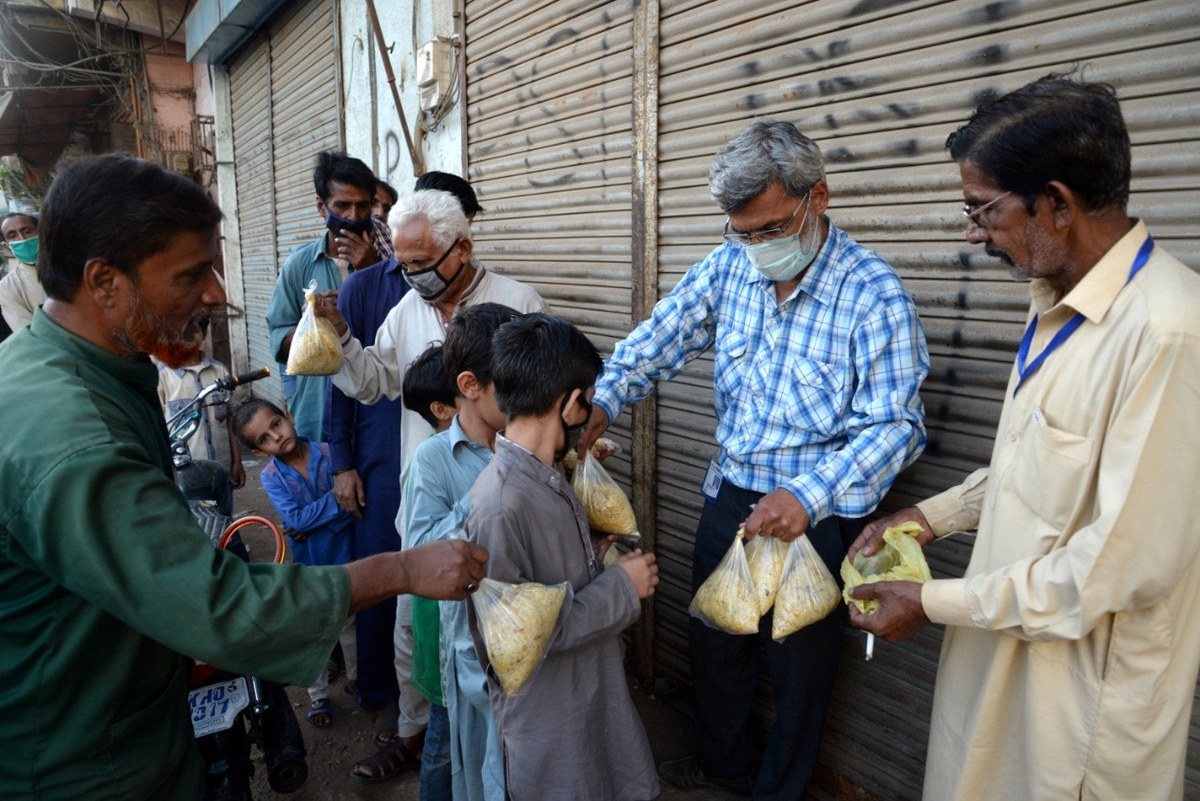
A man distributes biryani among poor people in the Lighthouse area of Karachi on April 25, 2020. Despite the restrictions, several residents make arrangements for the provision of food to the neediest during Ramadan. (AN Photo/S.A. Babar)
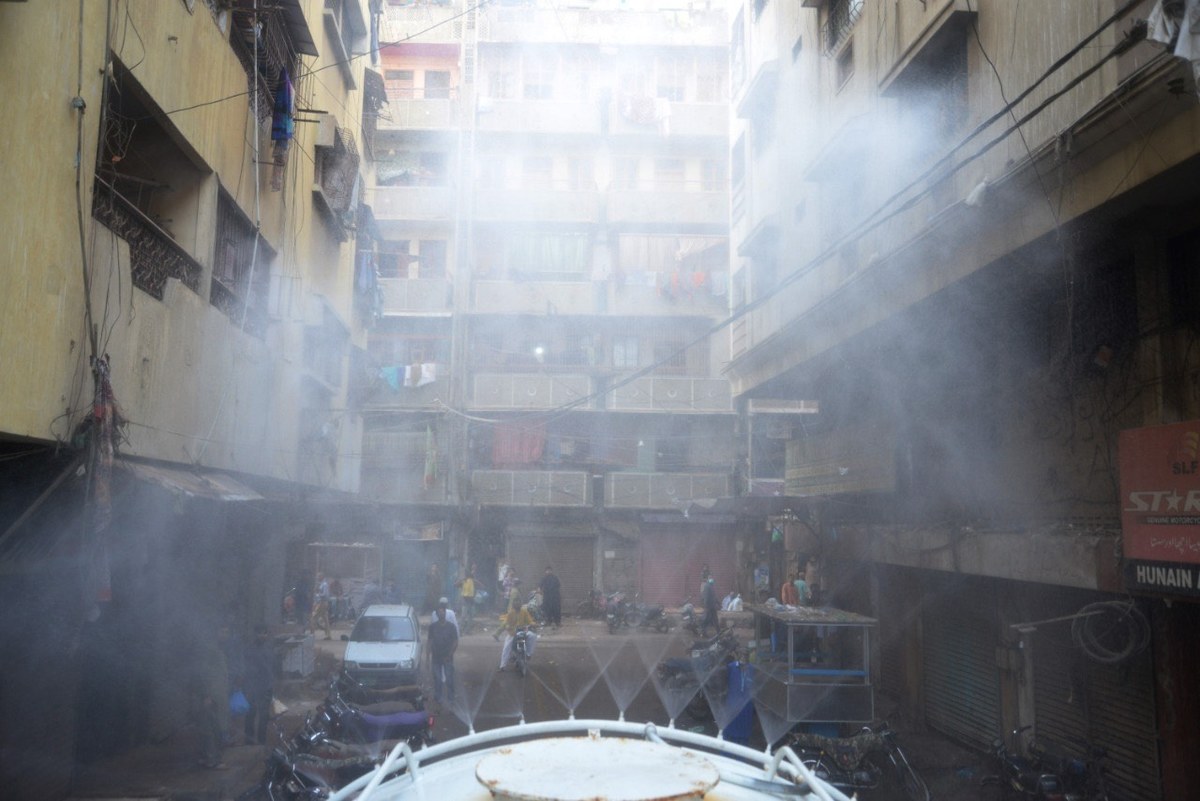
Local authorities are seen here disinfecting the Kharadar neighborhood of Karachi on the eve of the first fast on April 25, 2020. (AN Photo/S.A. Babar)
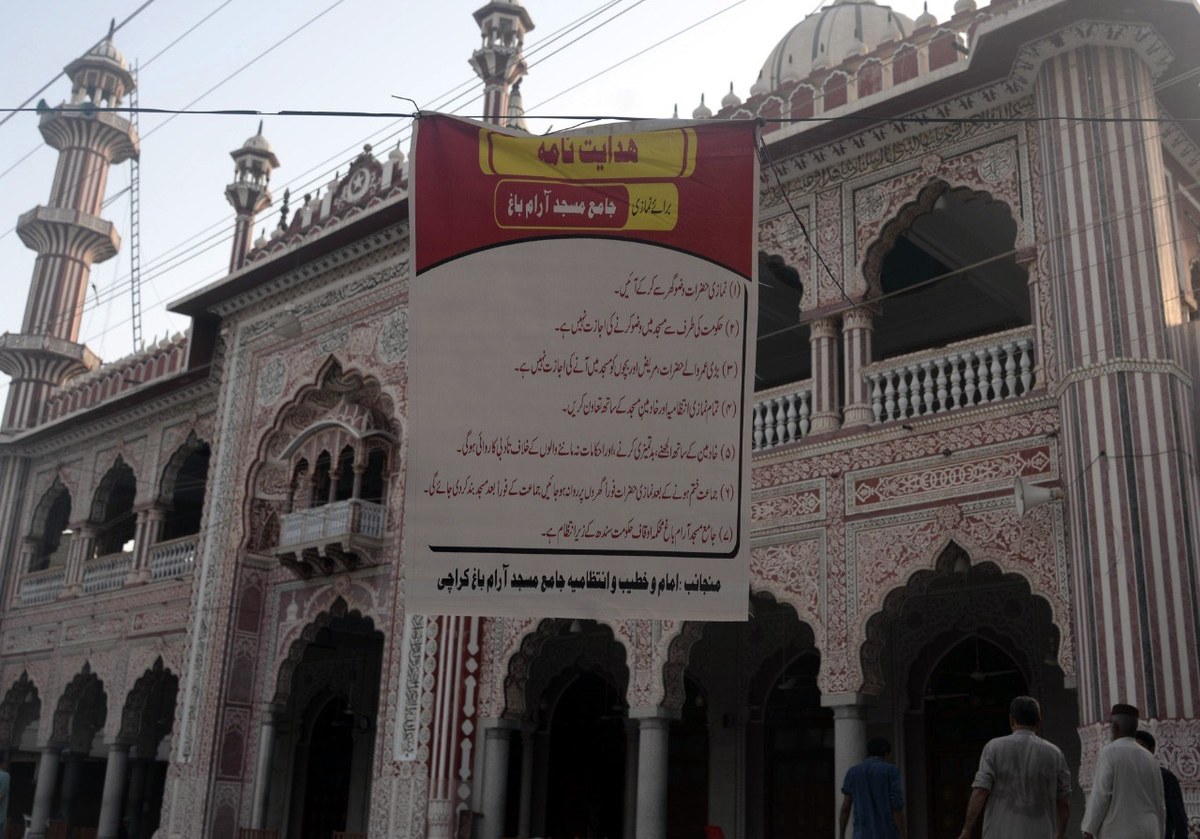
A banner posted on a wall of Jamia Masjid Arambagh, Karachi on April 10, 2020, asks the sick and elderly not to enter the mosques. The Sindh government, however, has placed a complete ban on communal prayers during Ramadan. (AN Photo/S.A. Babar)
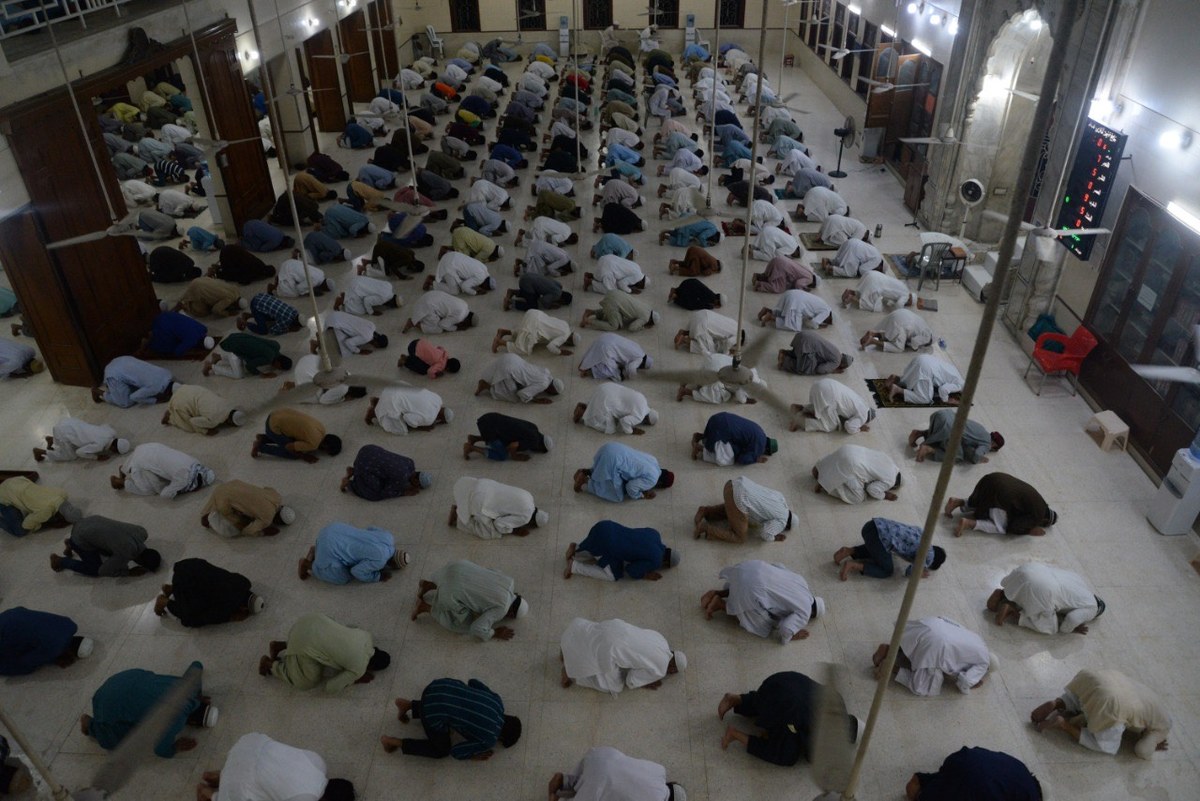
Worshipers offer Taraweeh prayers while observing the rules of social distancing at a mosque in Karachi, on April 25, 2020. (AN Photo/S.A. Babar)
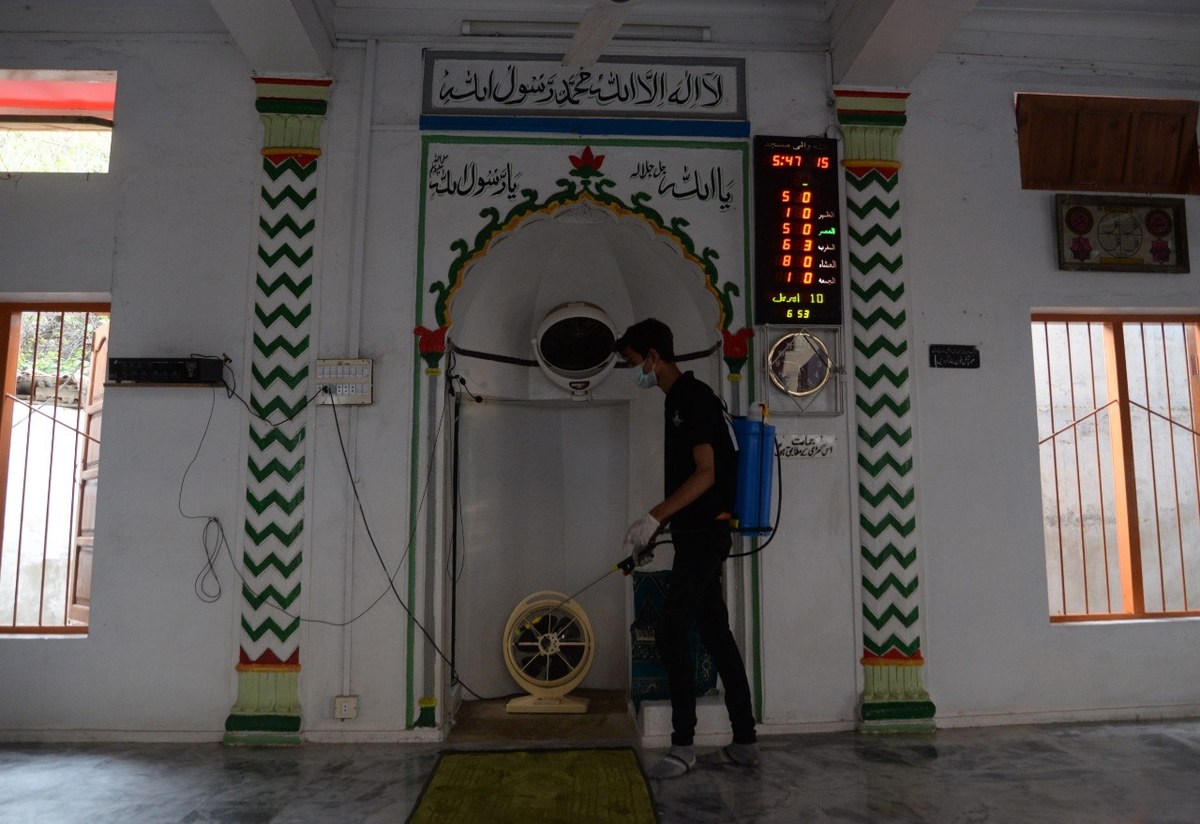
A worker is disinfecting a mosque in Karachi on April 10, 2020 (AN Photo/S.A. Babar)
















